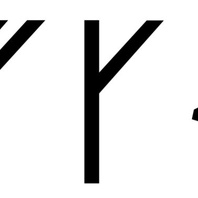
Viking Names
Alfgeir
Álfgeirr was not a common name in Viking Age Scandinavia, but it is attested in all of the Scandinavian countries and Iceland. The personal name was once found as the first element of the place-name Algarthorpe, Nottinghamshire; however, the village is now deserted. The name is an Old Norse compound formed from Álf-, identical with alfr ‘elf’, which is not particularly popular in Scandinavian names, and –geirr, ‘spear’ which is a common element in Old Norse personal names.
Read More
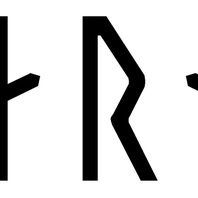
Viking Names
Barni
An Old Norse male name Barni is not certainly found in Scandinavia, although it may be attested in some Danish place-names. An alternative explanation is that Barni is an Anglo-Scandinavian variant of the very common male name Bjarni. The name forms the first element of two places in Nottinghamshire called Barnby.
Read More
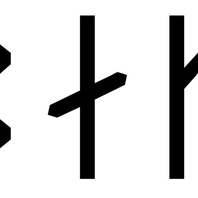
Viking Names
Bak
Bak is an original byname meaning ‘back’ and is not recorded as a given name in Scandinavia. It is the first element in the place-name Baston, Lincolnshire, and is also found as the first element of Baxby, in North Yorkshire.
Read More
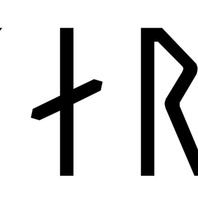
Viking Names
Sumarlidi
Sumarliði is originally a byname meaning ‘summer-traveller’. Although it has also been suggested that it is a variation on Vetrliði ‘a bear in its second year’, the close association of the name with the Viking diaspora supports the ‘summer-traveller’ meaning. These names likely arose in the Atlantic islands as there is one instance of Sumarliði from the early tenth century attributed to a man of Scottish birth, and several from the time of settlement in Iceland (c. 870-930). It does not appear until late in Norway, but there are several instances after c. 1320. The name is found in runic coin legends as the name of a moneyer operating in the Danish town of Lund between 1065 and 1075 – many of the moneyers in Lund actually came from England, where the name is relatively common. Sumarliði is also found in a place-name in Normandy. Sumarliði is the first element in three instances of the place-name Somerby, and one of Somersby, Lincolnshire, and the name is also frequently reported independently as a personal name in Domesday Book for Lincolnshire.
Read More
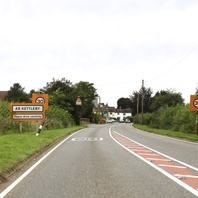
Viking Names
Ab Kettleby
Ab Kettleby, in the Framland Hundred of Leicestershire, comes from the Old Danish male personal name Ketil (Old Norse Ketill), originally a byname related to Old Norse ketill ‘a cauldron, a cauldron-shaped helmet’. This personal name was very common in England. It is compounded with Old Norse by ‘a farmstead, a village’. The affix Ab, which distinguishes the township from Eye Kettleby some four miles to the south, comes from the name of an early owner of the estate, a Middle English Abbe (either from the Old English male personal name Abba or the Old Norse male personal name Abbi).
Read More
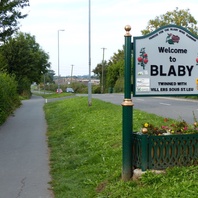
Viking Names
Blaby
Blaby, in the Guthlaxton Hundred of Leicestershire, likely comes from the unrecorded Old Norse male personal name Blár, which appears to be a byname from the Old Norse adjective blár ‘dark’, combined with the Old Norse element by ‘a farmstead, a village’.
Read More
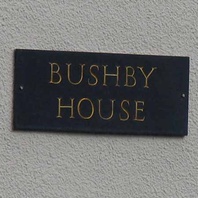
Viking Names
Bushby
The specific element of Bushby, in the Gartree Hundred of Leicestershire, is likely derived from the Old Norse male personal name Butr. Another Old Norse male personal name, Butsi, could also be formally accepted, and this personal name is found in the Danish place-names Busseby and Busserup. It has been suggested that the personal name became confused with Old English busc ‘bush’ or Old Norse buskr ‘shrub’, buski ‘shrubland’. This is a possibility because the neighbouring village Thurnby records a former area of thorn-scrub. The second element of the place-name is Old Norse by ‘a farmstead, a village’, thus Bushby could have the meaning ‘the farmstead of scrubland’ Bushby is now a joint parish with Thurnby.
Read More
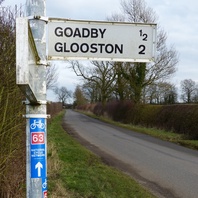
Viking Names
Goadby
The first element of Goadby, in the Gartree Hundred of Leicestershire, comes from the Old Norse male personal name Gauti (genitive singular Gauta), which is either a short form of names in Gaut- or is derived from an original byname meaning ‘a man from Gautland’. The second element of the place-name is Old Norse by ‘a farmstead, a village’. Occasionally the place-name is suffixed with reference to its neighbouring villages Noseley or Keythorpe to distinguish it from Goadby Marwood in the Framland Hundred.
Read More
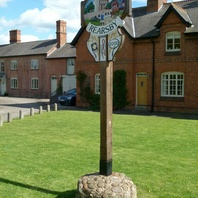
Viking Names
Rearsby
Rearsby, in the East Goscote Hundred of Leicestershire, comes from the Old Norse male personal name Hreiðarr and the Old Norse element by ‘farm, settlement’. The personal name here might be the same as that in Rotherby, Leicestershire.
Read More
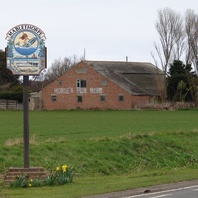
Viking Names
Mablethorpe
Marblethorpe, in the Calceworth Wapentake of Lincolnshire, comes from a likely Continental Germanic male personal name Malbert and Old Norse þorp ‘a secondary settlement, a dependent outlying farmstead or hamlet’.
Read More

Viking Names
Scartho
Scartho, in the Bradley Wapentake of Lincolnshire, is a difficult name. The second element is clearly Old Norse haugr ‘a hill, a mound’. The first element, however, has been the subject of much discussion. It has been suggested that the first element is the Old Norse male personal name Skarði or the Old Norse element skarð ‘an opening, an open place in the edge of something, a gap, a mountain pass’. Since the area is now built up, it is nearly impossible to determine the exact topography of the place. It may be pointed out that there are patches of glacial sand and gravel and alluvium at the top of the hill. It has also been suggested based on forms of the name in Scarf- that the first element is Old Norse skarfr ‘a cormorant’, but these spellings occur in only one source. On balance, skarð provide an acceptable first element, but twentieth-century development makes certainty impossible.
